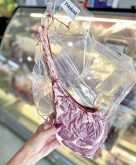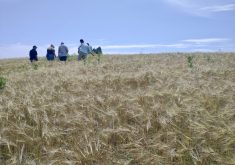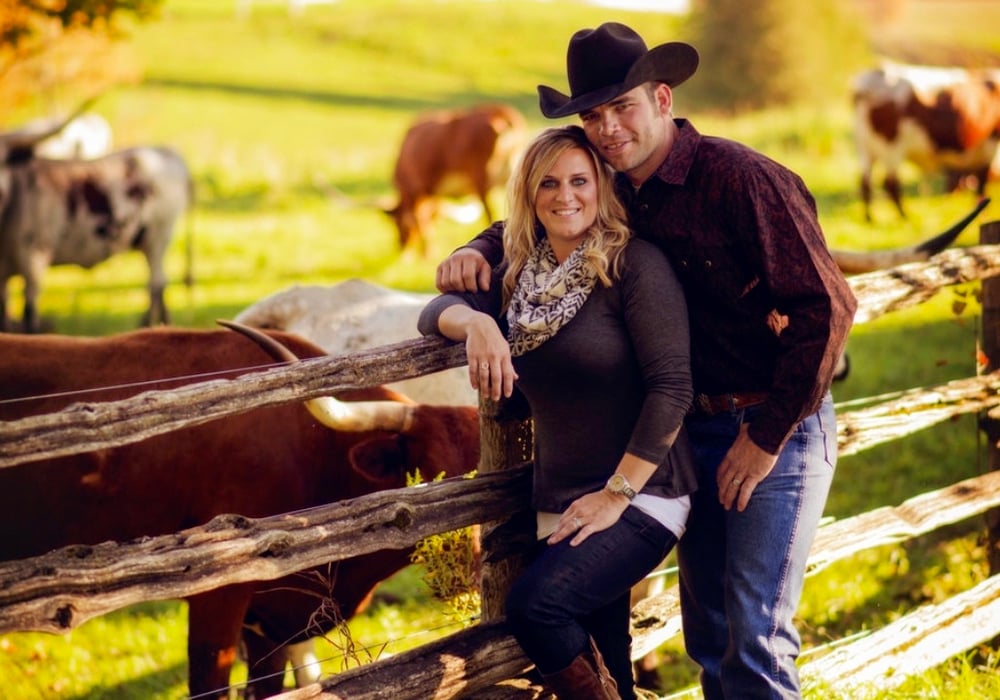Wendy Hogarth and Murray Johnston have turned their cranberry farm market into a destination.
Muskoka Lakes farm and winery, located in Bala, Ont. won the Ontario Farm Fresh Marketing Association’s 2019 Farm Market of the Year is Muskoka Lakes farm and winery. Hogarth talked about their farms’s transition at the 2020 Ontario Fruit and Vegetable Convention in Niagara Falls.
Why it matters: On-farm markets are popular, but farmers have to find a way to be different from competitors to grow their businesses.
Read Also

Ontario’s agri-food sector sets sights on future with Agri-Food 2050 initiative
The first-ever Agri Food 2050, a one-day industry event dedicated to envisioning the future of food and farming in Ontario,…
Although the on-farm market began in 1980, the Johnston family worked harder towards it in the 1990s after the cranberry market tanked.
“(We focused) on two main strategies: transitioning more into fresh instead of frozen, a strategy that didn’t work as well as we hoped, and developing a winery,” says Hogarth.
The winery was successful and they have grown their products since then.
Hogarth says authenticity is important. For them it was creating wine out cranberries instead of grapes. They didn’t know how consumers would respond but they wanted to utilize fruit grown in their area.
“We are very tied to the land and what it produces. It’s that idea of terroir and to use that terroir in our area is cranberries and blueberries and quality. We use all the various tried and true methods to develop wines that reflect our region.”
With the inclusion of the winery, the family decided to open full time. They understand it is a tough decision for farmers to make but Hogarth says consistency is important.
“We don’t have a lot of traffic going by our farm, so to us it was really important to be consistent.”
As well, consistency helps customers to understand the value of the product.
“How do people see the value of something if you are doing it in your spare time?”
The Johnston family looked into other avenues of on-farm markets to add value to their crop. They felt the timing of their crop and the lack of opportunity for “pick your own” was inhibiting them and they began to focus on making their farm a destination.
They investigated the experience economy, allowing customers to buy an experience instead of an item.
They continued the wagon tours and developed trails but customers were still looking for more and wanting to learn about the family and what they did. So they developed a year-round walking tour.
“Our walking tour is more value (compared to the wagon tour). You get the personal connection, you get to touch, you get to see, you get to ask questions. You are actually out in the fields and seeing things a little more closely.”
As well, the wine tasting turned into a full tour and tasting.
“We called it our bog to bottle discovery and Canada tourism decided it was unique and distinctive enough to be a part of their Canadian signature experience collection and from there it became an Ontario signature experience.”
The Muskoka Lakes farm and winery continued to work towards being an experience for customers by providing a destination.
“There are four realms of experience; entertainment, education, esthetic and escape. If you are planning an experience you want to try as much as you can to create a sweet spot that will incorporate all four factors.”
For the Johnston family they found it was best to offer experiences throughout all seasons.
In winter the farm and winery provide ice skating, pond hockey, snowshoeing and hot wine and cider. The spring provides maple syrup and hikes. In summer they offer patio seating, tours of blueberries and cranberry blossoms. During fall harvest, customers can take take a cranberry plunge, wagon tours and enjoy fall colours.
“We don’t have some of the acreage that (southern Ontario farmers) are able to work with, the hay and corn mazes, some of the things you can offer for kids. For us we found it has not been a market that works for us. So we are focusing on adult fun.”
Branding is about what the market provides and who the farm represents.
“You can speak about in terms of infrastructure, what you grow, what your product is, or you can start to talk and think about emotional connections. What’s the experience that people can have when they are there.”
That is how the farm settled on Muskoka Lakes farm and winery.
Hogarth says there are numerous touchpoints that a customer can have before they step foot on on-farm markets, the website, signage, social media etc. It’s important for it to be easily accessible, helpful, clear and updated regularly.
The people power within the market is critical and it starts with farm staff.
Hogarth says that the staff needs to be empowered. If the staff is happy, engaged and have the tools, then customers will be happy, engaged and have the tools they need.
As well, social media is very important today.
“The conversations are going on whether you are a part of them or not. The better thing to do is to be a part of that conversation. Figure out what your authentic voice is and how you want to talk to people.”















